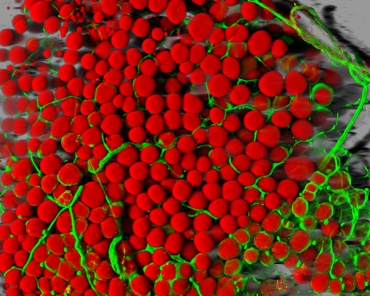
Our immune system sees Neu5GC as foreign and antibodies are made to attack it. This cancause inflammation and may promote cancer cell growth.
Neu5Gc, a non-human sialic acid sugar molecule common in red meat that increases the risk of tumor formation in humans, is also prevalent in pig organs, with concentrations increasing as the organs are cooked, a study by researchers from the UC Davis School of Medicine and Xiamen University School of Medicine has found. The research suggests that Neu5Gc may pose a significant health hazard among those who regularly consume organ meats from pigs.
Neu5Gc is naturally found on cell surfaces in most mammals but not in humans. It gets incorporated into human cells by eating meats, organs and some dairy products...
Read More






Recent Comments